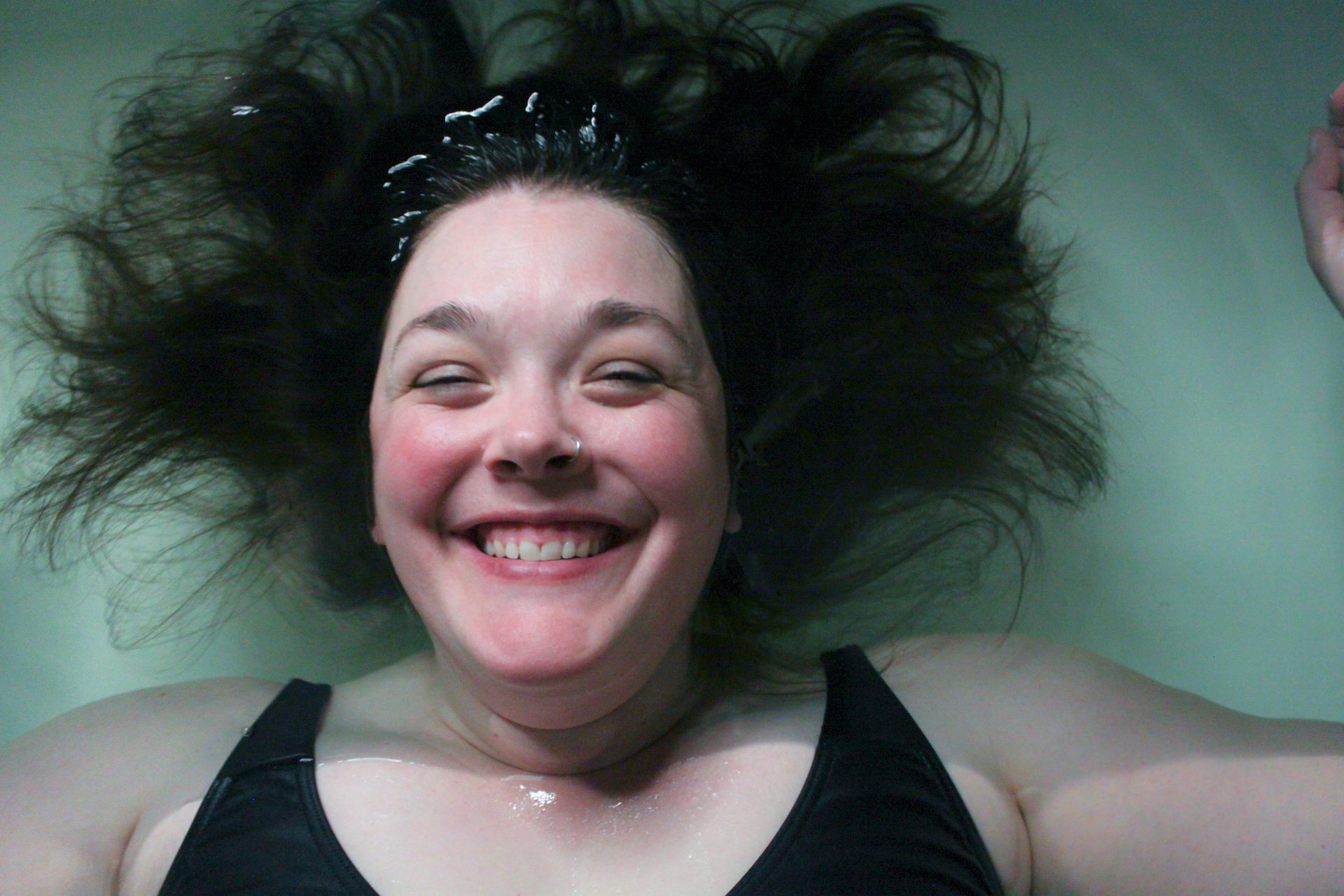Isolation Tank Near Me (Location: Pittsburgh, PA)
Isolation Tank Near Me (Location: Pittsburgh, PA)

Ever wondered what it's like to float effortlessly in a tranquil, serene environment? That's what an isolation tank offers. Also known as sensory deprivation tanks, these unique devices have gained popularity for their incredible mental and physical health benefits. But what exactly are they, and why should you try one, especially if you're in Pittsburgh, PA? Let's dive in!
Understanding Isolation Tanks
The Science Behind Isolation Tanks: Isolation tanks are soundproof, lightproof pods filled with saltwater at skin temperature. This creates a feeling of weightlessness, providing an environment devoid of external stimuli. The concept was first developed by neuroscientist Dr. John C. Lilly in the 1950s to explore the nature of consciousness by removing sensory inputs.
How Isolation Tanks Work: When you float in an isolation tank, the absence of sensory input allows your mind and body to enter a deeply relaxed state. This environment helps reduce cortisol levels (the stress hormone) and promotes the release of endorphins, leading to a sense of well-being and relaxation.
Why Try an Isolation Tank?
Mental Health Benefits: Floating in an isolation tank can significantly enhance mental clarity, creativity, and focus. It's known to help with anxiety, depression, and PTSD by promoting deep mental relaxation.
Physical Health Benefits: The buoyancy in the tank takes pressure off your joints and muscles, which can aid in pain relief and physical recovery. Athletes often use flotation therapy to accelerate recovery and improve performance.
Stress Reduction and Relaxation: In our fast-paced world, stress is a common issue. Isolation tanks offer a unique way to disconnect and recharge, helping to lower stress levels and improve overall well-being.
Finding an Isolation Tank Near You
Why Pittsburgh, PA is a Great Place for Isolation Tanks: Pittsburgh, with its rich cultural heritage and vibrant health and wellness community, is an excellent place to explore isolation tanks. The city boasts several top-notch facilities offering sensory deprivation experiences.
Top Isolation Tank Centers in Pittsburgh, PA
Overview of Popular Centers
Pittsburgh is home to several premier isolation tank centers, each offering unique experiences and services. Here are some of the top options:
- Levity Float Studio
- True REST Float Spa
- Metta Float
Detailed Review of Each Center
Levity Float Studio: Located in the heart of Pittsburgh, Levity Float Studio offers a luxurious float experience with state-of-the-art tanks and a serene environment. They provide single sessions and membership packages, catering to both first-timers and regular floaters.
True REST Float Spa: True REST Float Spa is part of a national chain known for its high-quality services and consistent customer satisfaction. They offer various packages, including introductory offers for new clients and monthly memberships.
Metta Float: Metta Float stands out with its holistic approach to wellness, combining float therapy with other services like massage and acupuncture. Their tranquil setting and personalized services make it a popular choice among locals.
What to Expect During Your First Visit
Preparation Tips: Before your session, it's essential to avoid caffeine and heavy meals. Arrive with an open mind and be prepared to relax.
What Happens During the Session: You'll start with a brief orientation, followed by a shower. Then, you enter the tank and begin your float. The session typically lasts 60-90 minutes, during which you'll experience deep relaxation.
Post-Session Recommendations: After your float, it's a good idea to take it easy. Many centers offer a relaxation room where you can sip tea and slowly reorient yourself to the outside world.
Cost and Packages
Average Cost of Sessions: The cost of a single float session in Pittsburgh ranges from $60 to $90, depending on the center and session length.
Available Packages and Memberships: Many centers offer packages and memberships that provide discounts for multiple sessions. Monthly memberships can range from $100 to $200, often including perks like guest passes and additional services.
Customer Experiences and Reviews
Testimonials from Users: Many users rave about the transformative effects of floating. Common themes in testimonials include improved sleep, reduced stress, and enhanced mental clarity.
Common Feedback: While most feedback is positive, some users mention initial discomfort adjusting to the sensory deprivation. However, this typically diminishes with subsequent sessions.
Isolation Tanks vs. Other Relaxation Methods
Comparison with Meditation: Both meditation and floating promote relaxation, but isolation tanks can enhance the experience by removing all external stimuli, making it easier to achieve a meditative state.
Comparison with Yoga: Yoga combines physical movement with mental relaxation, while floating focuses solely on mental and sensory relaxation. Both are beneficial, but they serve different purposes.
Comparison with Spa Treatments: Spa treatments often involve physical manipulation, like massage, while floating relies on sensory deprivation. Both can reduce stress, but floating offers a unique, introspective experience.
Tips for Maximizing Your Isolation Tank Experience
Best Practices
- Arrive early to relax before your session.
- Avoid caffeine and heavy meals beforehand.
- Use earplugs to block out any residual noise.
Common Mistakes to Avoid
- Don’t touch your face during the session to avoid getting saltwater in your eyes.
- Don’t enter the tank with cuts or scrapes, as the saltwater can sting.
Safety and Hygiene Standards
Safety Measures in Isolation Tank Centers: Centers in Pittsburgh adhere to strict safety protocols, including regular cleaning and disinfecting of tanks, to ensure a safe experience for all users.
Importance of Hygiene: The high salt content in the tanks acts as a natural disinfectant, but centers also use additional cleaning methods to maintain hygiene standards.
Who Should Avoid Isolation Tanks?
Health Conditions to Consider: People with severe claustrophobia, open wounds, or certain medical conditions should consult with a doctor before using an isolation tank.
Contraindications: Pregnant women, individuals with low blood pressure, and those under the influence of drugs or alcohol should avoid using isolation tanks.
Frequently Asked Questions
How Long is a Typical Session? Most sessions last between 60 to 90 minutes, but some centers offer extended sessions.
What Should I Bring? You typically don’t need to bring anything, as most centers provide towels, earplugs, and toiletries.
Can I Use an Isolation Tank If I Can’t Swim? Absolutely! The high salt content makes you float effortlessly, so swimming skills are not required.
Is It Safe During Pregnancy? It can be safe during pregnancy, but it’s best to consult with your doctor first.
How Often Should I Use an Isolation Tank? Frequency depends on your personal needs and goals. Some people float weekly, while others may go monthly.
Conclusion
Isolation tanks offer a unique and effective way to relax, reduce stress, and improve overall well-being. With several top-notch centers in Pittsburgh, PA, there's no better time to try it out. Whether you're seeking mental clarity, physical recovery, or simply a break from the hustle and bustle, floating can provide a much-needed respite.
Five Unique FAQs
Can I wear a swimsuit in the isolation tank?
- Yes, but it's recommended to float nude to maximize the sensory deprivation experience.
Will I feel claustrophobic in the tank?
- Most people don’t, but if you’re concerned, many centers offer open float rooms.
How is the water cleaned?
- The water is filtered multiple times between sessions and treated with UV light and disinfectants.
Can I float if I have tattoos?
- Yes, but ensure your tattoos are fully healed before floating.
What if I fall asleep in the tank?
- It’s safe to fall asleep. The high salt concentration keeps you afloat, and many people find floating so relaxing that they doze off.
Ready to experience blissful relaxation? Click here or the button below and schedule your session.












